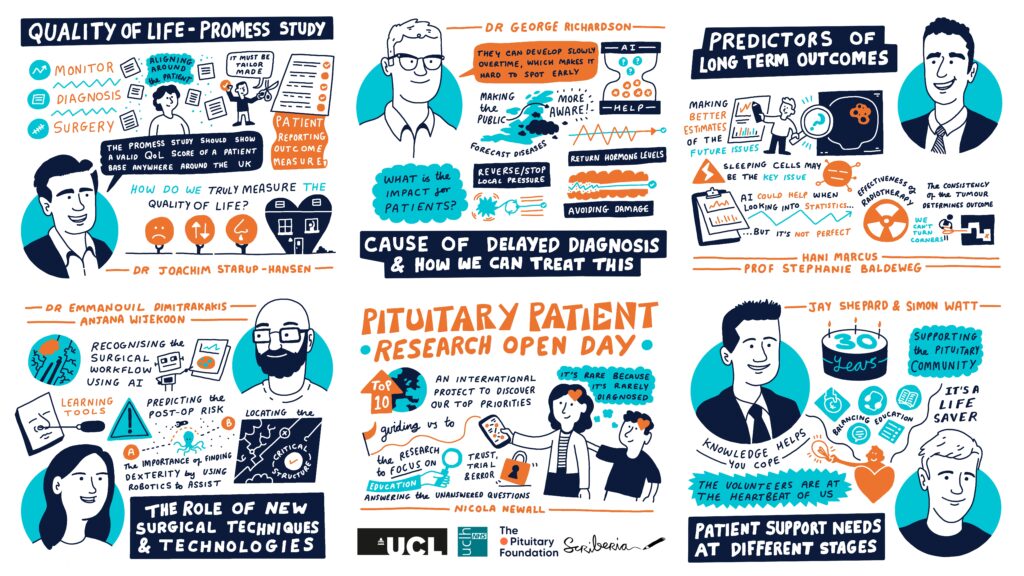UCL NHS / UCL / Pituitary Foundation
Early on a damp Autumn Saturday morning patients and carers navigated the maze of corridors of the National Hospital of Neurology and Neurosurgery in London to attend a series of presentations by experts in the field of pituitary surgery and treatment.
As a patient or carer, attending events like this can be daunting – what is it you are going to hear on the day? Meeting new people and navigating your own health needs to get to a venue can also present challenges! However, I have to say whatever issues I may have experienced in travelling to the venue were more than compensated for in attending the event.
New and exciting information was shared in the presentations together with a real sense of community meeting others on a similar patient/carer journey and healthcare professionals who thrive on conversations and information from talking to and collaborating with service users. The knowledge and experiences a patient brings about what impacts them informs future pituitary best practice and improves research, diagnosis, treatment/surgery, care and patient quality of life.
Attendees were warmly welcomed by Simon Watt, the public engagement manager at the UCL Hawkes Institute, and over refreshments there was time to chat with pituitary patients and carers from across the UK. I don’t think anybody really knew 100% what to expect, but we were there to find out more for ourselves, our carers/families and support groups.
The accessible presentations spoke directly to the audience about how our lives are impacted by pituitary conditions. Speaker after speaker and their presentations shone new light and insight on not only the challenges associated in living with pituitary conditions and surgery, but also with hope for how AI and robotics, new research and surgical devices in development can improve recovery, outcomes and quality of life.
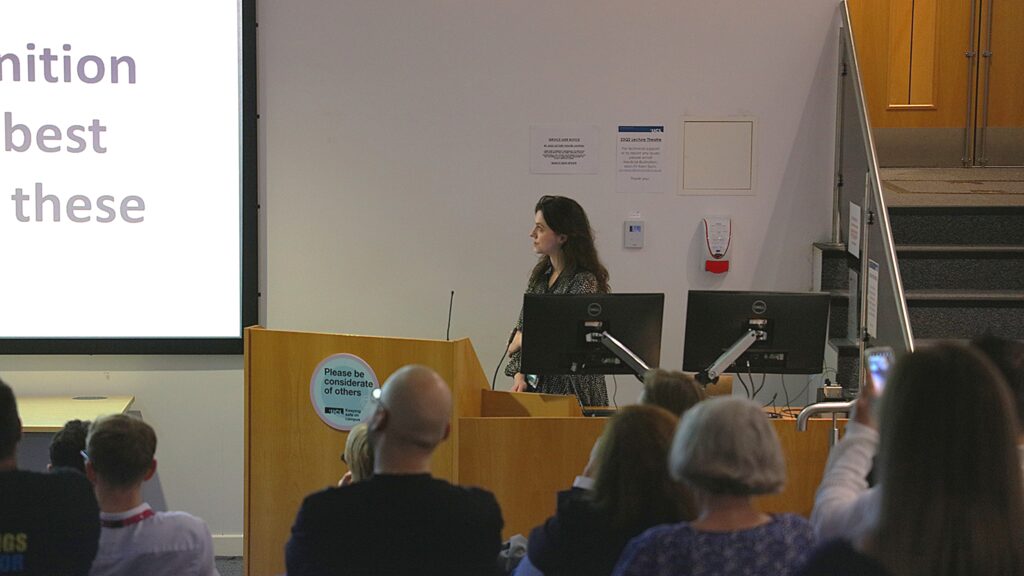
Nicola Newall presented findings from the PitCop study, illustrating how patients helped define the Top 10 priorities in pituitary surgery. These insights will guide future research to better align with what matters most to those affected.
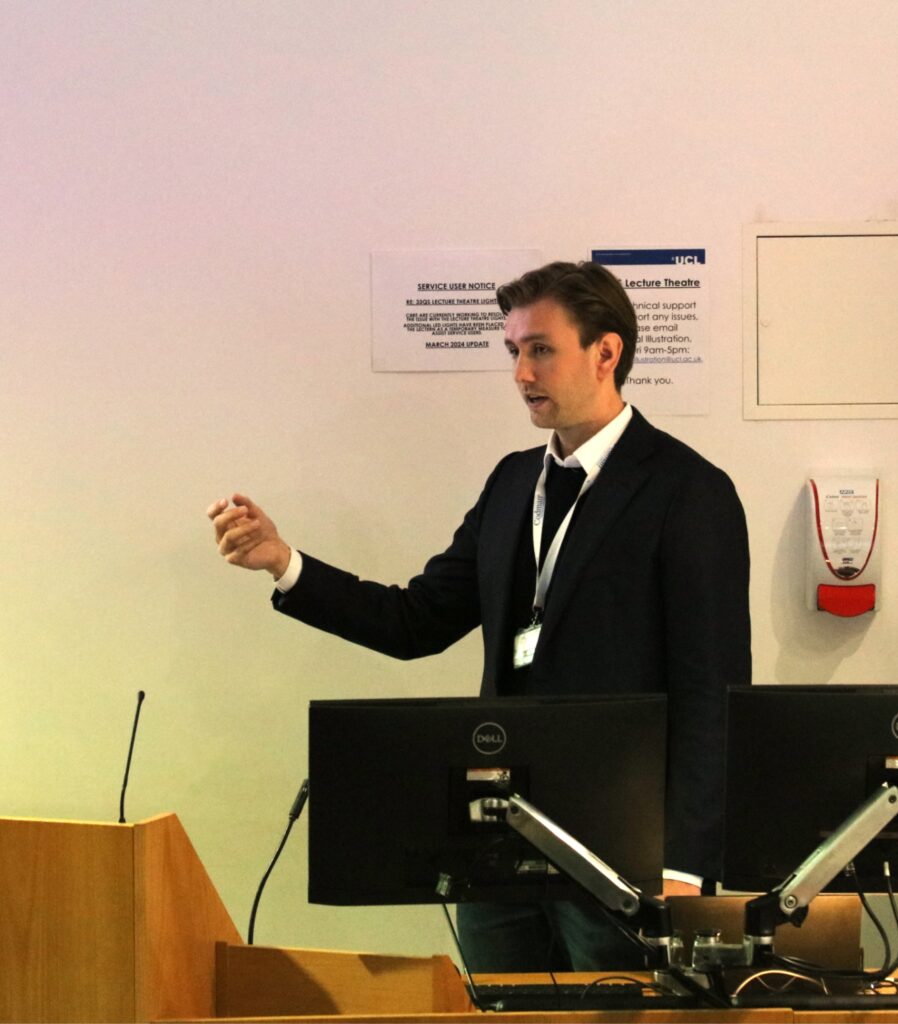
Joachim Starup-Hansen, a neurosurgery trainee, engaged us through sharing the technical challenges facing a surgeon performing pituitary surgery. For example, a pituitary adenoma is not just a pituitary adenoma, it’s an NFA, ACRO, PRL or CD –! Also, as a patient, I watched with amazement the sort of procedure I had experienced which previously I had not been keen to think about!
The next topic which for me was, and is, of huge importance is ‘Quality of Life’ and, for patients, how can this be measured? A Patient-Reported Outcome Measure (PROM) form for patients with pituitary adenomas undergoing transsphenoidal surgery is being developed. It’s being trialled at 8 UK centres with 60 patients already enrolled and will help to inform that better future that we all want as patients and carers for surgery and recovery.
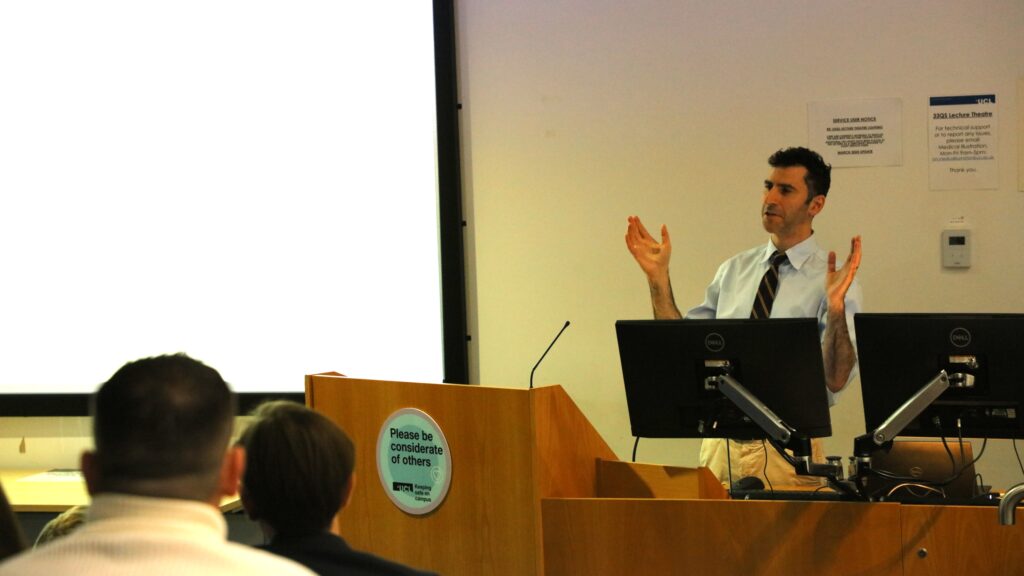
Hani Marcus, clinician/surgeon, addressed the challenge of ‘what methods can be used to better predict long-term outcomes and management of pituitary adenomas?’ Quite a question! Hani was clear in his message that more and better data combined with improved AI is the way forward.
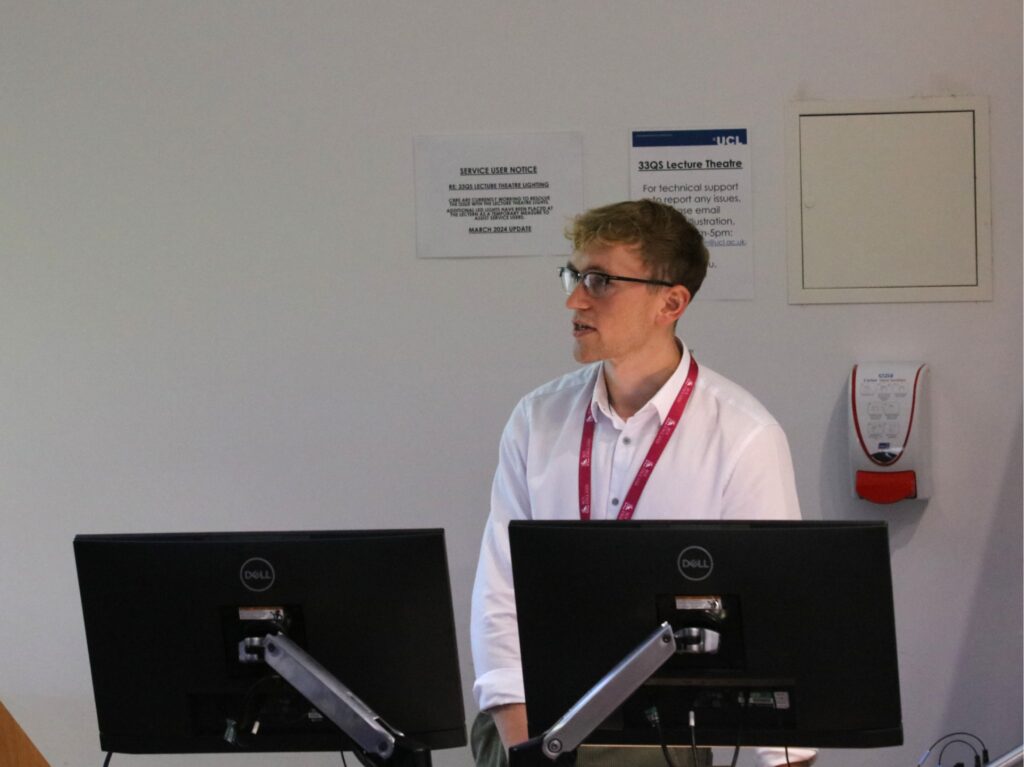
Then Dr George Richardson considered the issue of delayed diagnosis. Early diagnosis leads to better outcomes for the patient but remains a challenge for healthcare services. There is no easy answer but they’re working on it and harnessing the power of AI to identify symptoms that forecast health which will help to identify pituitary conditions sooner is in development.
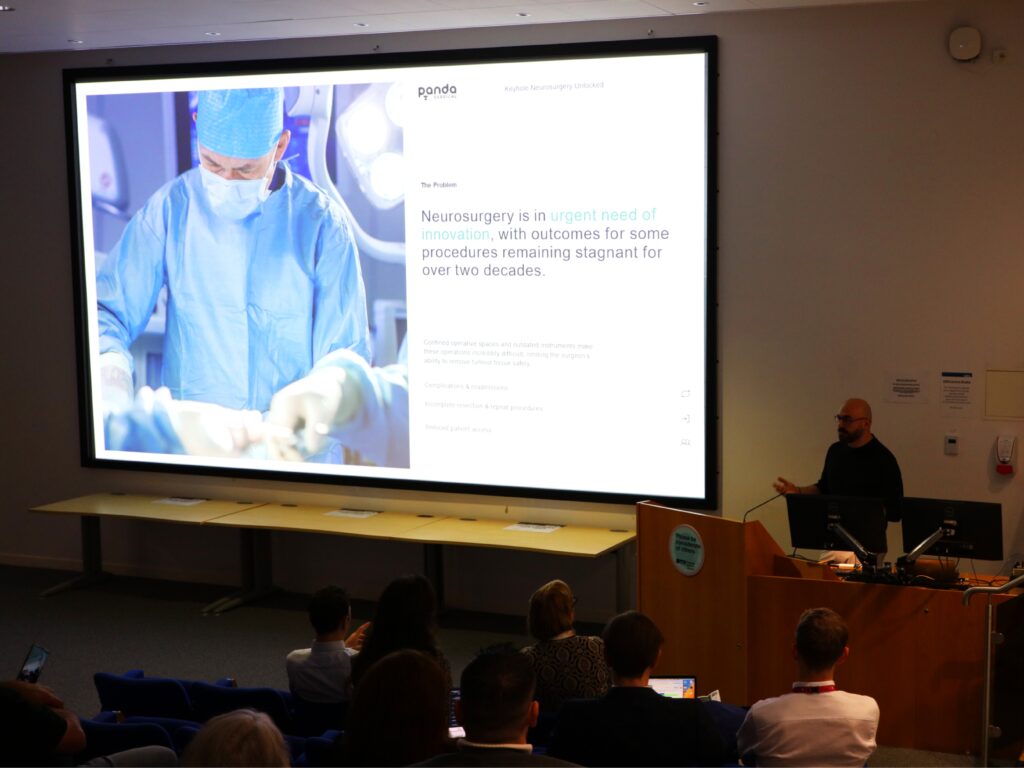
The use of AI was a common theme, including developing robotics to improve surgery, safety and patient outcomes. Manios Dimitrakakis, CEO of Panda Surgical, showed us some of the robotic instruments which are quite awe inspiring in the advantages they offer to pituitary surgeons.
Jay Shepard of the Pituitary Foundation talked us through the inspirational work they are doing in bringing together patients and carers, supporting them with essential information, updates and stories from the pituitary community via their website. Awareness raising on pituitary conditions and on the benefits of becoming a member including telephone support and research opportunities where sharing your lived experience really makes a difference.
Throughout the session an amazing graphic artist, Tom Bradshaw from Scriberia, captured the speakers and key content in a very accessible way, and this added another dimension to the event which you can marvel at below.
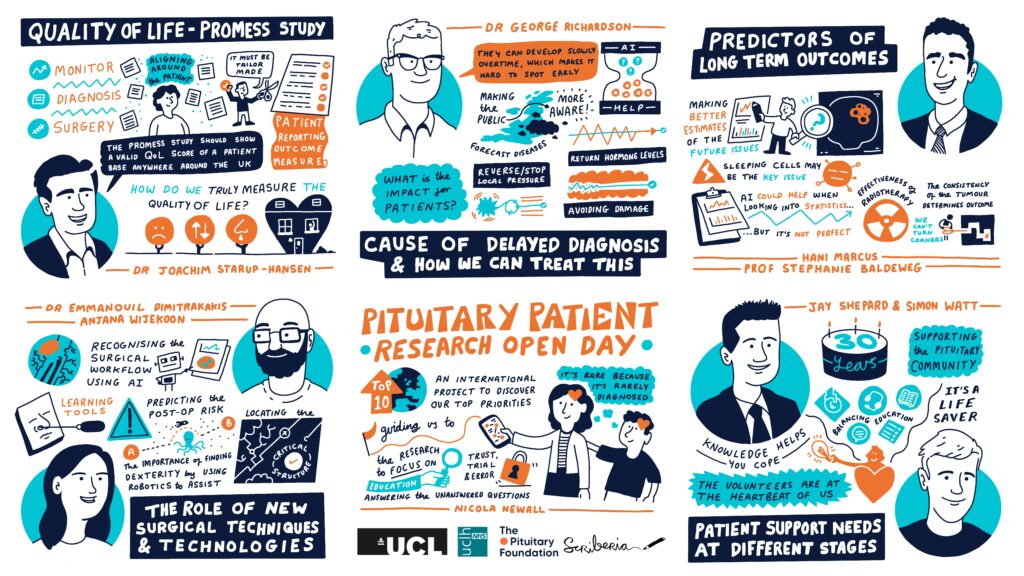
There was plenty of opportunity for the audience to ask questions of the experts – we cannot recommend highly enough that you consider taking part in the next event to support and inform yourself.
This event left us both better informed and with a message of hope! Please take the best care of yourself in whatever stage of your pituitary journey you have reached.
Ali (patient) and Terry (carer) Bryant








